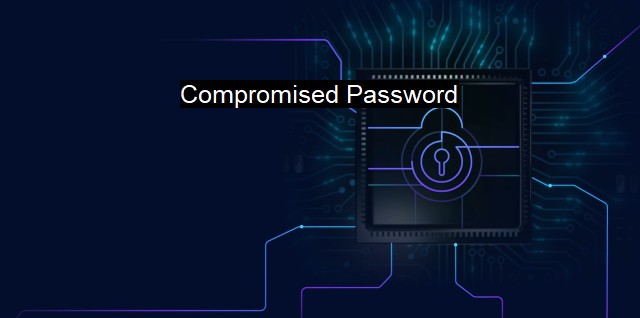What is Compromised Password?
Risks and Consequences of Compromised Passwords: Understanding Cybersecurity Threats and Best Practices to Ensure Protection of Sensitive Information and Networks
In the sphere of cybersecurity and antivirus, a compromised password is a profound issue that concerns almost everyone today who uses the internet for various activities. This term refers to a password that has been exposed or leaked in some way, giving unauthorized individuals access to private, sensitive, or secure information. Its implications far outreach a simple privacy violation; compromised passwords can lead to devastating consequences including identity theft, financial loss, or even potential harm to a company’s business operations or reputation.To better understand a compromised password, one might need to dissect the anatomy of cyberattacks, particularly the methods through which hackers access private data. They utilize several techniques such as phishing, keylogging, or data breaches on large-scale databases to extract passwords. Once these passwords have been obtained, they are then used to facilitate unauthorized access, perform malicious actions, or even sold on the dark web, contributing expansively to the cybercrime landscape.
Phishing is a deceptive technique wherein emails or messages are sent masquerading as a trustworthy entity to trick individuals into revealing sensitive info such as usernames, passwords, credit card numbers, or social security numbers. In the context of compromised passwords, phishing attacks often trick users into providing their login credentials on a phony login page.
Keyloggers, on the other hand, are malignant software or hardware devices designed to record a user's keystrokes - capturing everything typed on the device, including passwords. These are often employed stealthily in public spaces or through malware, making them particularly vicious in nature.
Data breaches on large or small businesses' databases are another prolific source of compromised passwords. These breaches often involve the illicit extraction of extensive amounts of data, including entire customer databases, employee information, and more. Due to inadequate or flawed security measures, these databases are hacked into, and the information, including the passwords, is stolen.
A compromised password also directly links to the lack of password hygiene practices among Internet users. For instance, users repeating the same passwords for multiple accounts or using weak, easily presumed passwords like "123456" or "password" expose themselves to the risk of becoming victims of cyber-attacks.
The repercussions of compromised passwords are grave. For innocent users, it might mean unauthorized transactions, drained bank accounts, identity theft, or compromised personal or professional emails. For businesses, a compromised password can result in the leakage of sensitive data, leading to significant financial loss, tarnishing of their reputation, and faltered customer trust.
Among the solutions to this pervasive issue, two-factor or multi-factor authentication stands as an effective method to confirm users' claimed identities. These methods employ an extra step or device for validation in addition to entering password thus offering a higher level of security. password managers are advantageous tools in maintaining password hygiene; they can store, generate, and manage complex and unique passwords for different accounts automatically. Lastly, maintaining robust firewall and antivirus protections among the frontline defenses in combating these threats.
a compromised password is a grave cybersecurity threat. Awareness, education and utilization of strong security measures form the bedrock in combating against this issue. In today's interconnected digital world, cybersecurity vigilance is not just an option anymore; it is an absolute necessity.

Compromised Password FAQs
What is a compromised password?
A compromised password occurs when someone gains unauthorized access to your account by obtaining your password without your knowledge or consent. It could be due to a data breach, phishing attack, or malware infection that steals your password.How do I know if my password has been compromised?
You may notice suspicious activities on your account, such as unauthorized purchases, messages or emails that you didn't send or receive, or changes to your account settings. You may also receive notifications from your service provider or cybersecurity software that your password has been compromised.What should I do if my password has been compromised?
The first thing you should do is change your password immediately. Make sure to create a strong and unique password that is difficult to guess or crack. It's also recommended to enable two-factor authentication for an extra layer of security. Finally, notify your service provider or IT support team of the incident so that they can take appropriate measures to prevent further damage.How can I prevent my password from being compromised?
To prevent your password from being compromised, you should always use strong and unique passwords for each of your accounts. Avoid using common words, phrases, or easily guessable information like your birthdate, pet's name, or favorite food. It's also essential to keep your antivirus and cybersecurity software up to date and be cautious of suspicious emails or messages from unknown sources. Enable two-factor authentication whenever possible and regularly review your account activity to detect any unauthorized access.| | A | | | B | | | C | | | D | | | E | | | F | | | G | | | H | | | I | | | J | | | K | | | L | | | M | |
| | N | | | O | | | P | | | Q | | | R | | | S | | | T | | | U | | | V | | | W | | | X | | | Y | | | Z | |
| | 1 | | | 2 | | | 3 | | | 4 | | | 7 | | | 8 | | |||||||